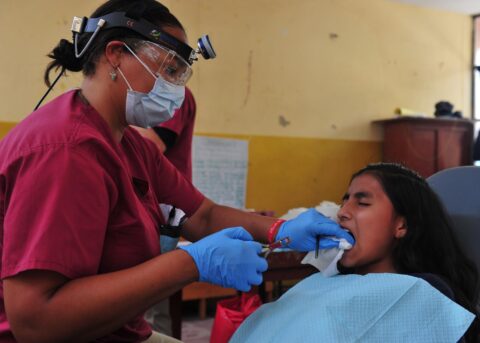Most people consider their eyesight, skin, teeth, or overall fitness before thinking about their hearing. Yet hearing shapes how we connect, work, communicate, and even stay safe. It’s one of those things we rely on every day but often take for granted—until it starts to fade. That’s why audiologists play such a vital role in protecting our long-term hearing health. They’re not just specialists who run tests; they guide us through some of the most important decisions for our quality of life.
In today’s world—where loud commutes, noisy workplaces, digital meetings, and constant headphone use are part of the daily routine—hearing care matters more than ever. Just as we visit dentists or optometrists for routine checkups, we should consider audiologists as essential partners in our lifelong health.
Understanding What Audiologists Actually Do
Audiologists are highly trained professionals who diagnose, treat, and help prevent hearing and balance disorders. However, that simple description doesn’t fully capture the impact of their work.
Imagine a preschool classroom on a busy morning. A child isn’t responding when spoken to, seems distracted, and is suddenly falling behind in speech. To a teacher or parent, it may appear to be behavioral issues. But an audiologist can quickly identify whether the child has fluid buildup, mild conductive hearing loss, or a more complex auditory problem. Early intervention can significantly alter a child’s developmental path.
Or consider a construction worker who has spent years around jackhammers, saws, and concrete drills. He’s used to the noise, but one day he realizes he’s turning his head to hear conversations better. An audiologist can measure whether noise-induced hearing damage has begun and help prevent further loss through custom hearing protection and regular monitoring—long before permanent damage occurs.
In elderly adults, audiologists also help uncover causes of communication difficulties that mimic memory decline. In some cases, addressing untreated hearing loss can enhance social interaction, reduce feelings of isolation, and even support cognitive health. Studies have increasingly shown a link between hearing health and conditions like dementia, highlighting just how far-reaching audiology care can be.
How Audiologists Protect Your Hearing for the Long Run
You don’t have to be experiencing symptoms to benefit from audiology care. Much like regular dental cleanings or annual eye exams, early detection is key. Here’s how audiologists help safeguard your hearing across all stages of life.
1. Early Identification of Subtle Hearing Changes
Hearing loss rarely happens overnight. It’s gradual—so gradual that most people don’t notice the signs until it becomes disruptive. Audiologists use specialized tests that detect subtle changes we may miss in everyday life. This means you can act sooner, adjust lifestyle habits, or explore preventive tools before the damage becomes irreversible.
2. Personalized Hearing Solutions (Not One-Size-Fits-All Devices)
Hearing aids today are more advanced than ever: tiny, smart, often Bluetooth-enabled. But they’re only effective when matched correctly to a person’s hearing profile. Audiologists use precise diagnostic results and real-ear measurements to tune hearing aids to the user’s actual needs. It’s the difference between hearing comfortably and giving up on a device because it “sounds weird.”
Healthcare professionals in industries such as aviation, music, emergency response, and hospitality rely on audiologists for this type of precise fitting. A pilot who mishears instructions or a musician who can’t hear subtle tones faces risks not only to their job but also to others. Tailored hearing support keeps them performing at their best.
3. Support for Balance and Inner-Ear Disorders
Audiologists also evaluate dizziness, vertigo, and balance issues linked to inner-ear problems. These symptoms can be debilitating. Imagine a chef in a busy kitchen or a driver in heavy traffic suddenly feeling disoriented. Through testing and collaborative care, audiologists help pinpoint the underlying causes, enabling patients to receive proper treatment and regain confidence in their daily routines.
4. Education and Prevention for Everyday Environments
One of the most overlooked parts of their role is education. Audiologists help people understand how everyday habits affect their hearing—such as listening to music at full volume, using inexpensive earbuds, or being exposed to loud machinery without protection. They also offer practical solutions, such as custom earplugs for swimmers, musicians, and industrial workers.
This preventive aspect is crucial because noise-induced hearing loss is one of the most preventable health issues today. Yet millions experience it simply because they don’t recognize the risks early enough.
Why Hearing Health Should Be Part of Your Routine Wellness Check
We live in a time where digital noise is everywhere—construction sites, gyms, trains, music festivals, video calls, restaurants, and traffic jams. Even children are exposed to higher noise levels than previous generations due to gaming headsets, school events, and crowded urban environments.
But here’s the good news: the earlier you check your hearing, the more control you have over your long-term health.
Hearing loss doesn’t just affect your ears. It impacts communication, self-confidence, career performance, safety, and emotional well-being. Many people avoid social situations or relationships change simply because conversations become more difficult. Untreated hearing loss has been associated with cognitive strain, requiring the brain to work harder to interpret sounds.
This is where audiologists become essential partners. They’re trained not only in technology and science but in understanding how hearing affects your lifestyle. Their recommendations are personalized—because the needs of a musician differ from those of a retiree, a factory worker, a teacher, or a remote-office professional.
Where Professional Expertise Truly Makes a Difference
As people seek trusted experts in hearing care, many turn to local professionals who offer thorough assessments and personalized, long-term solutions. Services like Sydney audiologists by Audi Hearing offer comprehensive hearing evaluations, support for hearing devices, and preventive care that helps people maintain healthy hearing habits. In a world full of conflicting advice and quick online fixes, having trained specialists guiding your long-term hearing health is invaluable.
Audiologists also stay updated with new research and emerging technology. This matters more than most people realize—especially when it comes to hearing aids, balance disorders, sound processing, and diagnostic tools that evolve so quickly. As hearing science advances, audiologists translate those innovations into real-world care for everyday people.
The Bigger Picture: Hearing Health and Your Quality of Life
It’s easy to underestimate the impact of hearing on memory, communication, mood, and connection. Every day sounds—children laughing, waves crashing, birds in the morning, conversations with loved ones—enrich life. When those sounds start to fade, life becomes quieter, not just physically, but emotionally as well.
Professionals who specialize in hearing care help preserve these experiences for as long as possible. And with growing evidence linking hearing health to cognitive function, the importance of early and ongoing assessments becomes even clearer. Small decisions today—like scheduling a checkup—can make a significant difference in your long-term well-being.
So whether you’re a parent concerned about your child’s development, a worker exposed to daily noise, someone noticing early signs of hearing changes, or simply someone who values their overall health, partnering with an audiologist is one of the smartest steps you can take.
Hearing is a gift we often don’t appreciate until it becomes difficult to use. Audiologists ensure we never have to reach that point before taking action. With the right support, awareness, and preventive care, you can safeguard your long-term hearing health and continue to enjoy the sounds that make life meaningful.
Disclaimer: This article is for general information only. It is not medical advice. If you have any hearing problems or health concerns, please talk to a qualified audiologist or healthcare professional.





